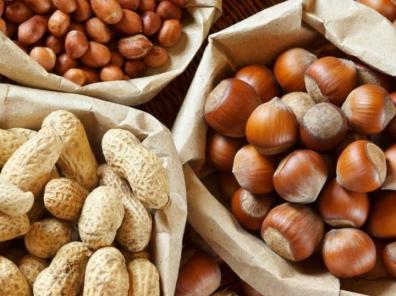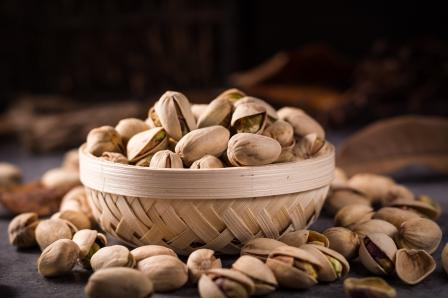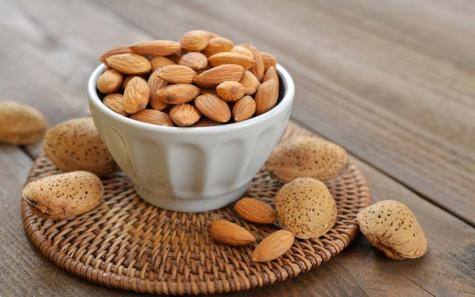When it comes to snacking on peanuts, there are two camps that seem to divide nut lovers worldwide: boiled peanuts and roasted peanuts. Each variety offers a unique taste and texture experience that has sparked heated debates among peanut enthusiasts. In this article, we will explore the differences between boiled peanuts and roasted peanuts, including their flavor profiles, nutritional benefits, cooking methods, and cultural significance. Boiled Peanuts: Boiled peanuts are a Southern delicacy that has been enjoyed for generations in the United States. To make boiled peanuts, raw peanuts are soaked in a salty brine mixture and simmered for several hours until they reach a soft, tender consistency. The slow cooking process infuses the peanuts with a salty, savory flavor that sets them apart from other peanut varieties. Flavor Profile: Boiled peanuts have a unique flavor profile that is often described as earthy, salty, and slightly sweet.
.
The prolonged cooking time allows the peanuts to absorb the flavors of the brine, creating a rich and intense taste experience. The soft texture of boiled peanuts is also a defining characteristic, making them a popular snack for those who enjoy a chewy and moist mouthfeel. Nutritional Benefits: Despite their reputation for being a high-sodium snack, boiled peanuts actually offer several nutritional benefits. Peanuts are a good source of protein, fiber, and healthy fats, making them a filling and satisfying option for snacking. Boiled peanuts are also rich in antioxidants, which can help protect against oxidative stress and inflammation in the body. Cooking Method: Boiling peanuts is a simple process that requires only a few ingredients and a bit of patience. To make boiled peanuts at home, start by rinsing raw peanuts in cold water to remove any dirt or debris. In a large pot, combine water, salt, and any desired seasonings, such as Cajun spices or garlic. Bring the brine to a boil and add the peanuts, then reduce the heat and simmer for several hours until the peanuts are soft and fully cooked. Cultural Significance: Boiled peanuts have a deep cultural significance in the Southern United States, where they are often enjoyed at sporting events, festivals, and family gatherings. In states like Georgia, South Carolina, and Alabama, boiled peanuts are considered a regional specialty that is synonymous with Southern hospitality and tradition. Many roadside stands and farmers’ markets in the South sell freshly boiled peanuts, allowing locals and tourists alike to experience this cherished snack. Roasted Peanuts: Roasted peanuts are a classic snack that is enjoyed around the world for their crunchy texture and rich, nutty flavor. To make roasted peanuts, raw peanuts are dried and roasted in an oven or on a stovetop until they are golden brown and crispy. The roasting process intensifies the natural flavors of the peanuts, resulting in a bold and satisfying taste sensation. Flavor Profile: Roasted peanuts have a more intense and concentrated flavor compared to boiled peanuts. The roasting process caramelizes the natural sugars in the peanuts, giving them a slightly sweet and nutty taste. The crunchy texture of roasted peanuts is another appealing feature for many snackers, providing a satisfying crunch with every bite.
..
Nutritional Benefits: Roasted peanuts are a nutrient-dense snack that offers a range of health benefits. Peanuts are packed with essential nutrients like protein, vitamins, minerals, and antioxidants, making them a wholesome and nourishing choice for snacking. Roasted peanuts are also a good source of monounsaturated fats, which can help reduce the risk of heart disease and improve cholesterol levels. Cooking Method: Roasting peanuts at home is a straightforward process that requires minimal effort and equipment. To roast peanuts in the oven, spread raw peanuts in a single layer on a baking sheet and bake at 350°F for 15-20 minutes, stirring occasionally. For stovetop roasting, heat a skillet over medium heat and add the peanuts, stirring frequently until they are golden brown and fragrant. Roasted peanuts can be seasoned with salt, spices, or sweeteners to enhance their flavor. Cultural Significance: Roasted peanuts are a popular snack in many cultures and cuisines around the world, from the United States to Asia to Africa. In the United States, roasted peanuts are a staple at baseball games, carnivals, and snack bars, where they are often enjoyed salted and in the shell. In Asian cuisine, roasted peanuts are used as a topping for salads, stir-fries, and noodle dishes, adding a crunchy texture and nutty flavor to savory dishes. Conclusion: In the battle of boiled peanuts vs. roasted peanuts, both varieties offer distinct taste experiences and nutritional benefits that cater to different preferences and palates. Boiled peanuts are prized for their tender texture and savory flavor, making them a beloved snack in the Southern United States. Roasted peanuts, on the other hand, are known for their crunchy texture and rich, nutty taste that appeals to snackers around the world. Whether you prefer the soft and salty goodness of boiled peanuts or the crispy and flavorful crunch of roasted peanuts, both options provide a delicious and satisfying snacking experience.
…
Overall, the choice between boiled peanuts and roasted peanuts ultimately comes down to personal preference and cultural tradition. Whichever variety you choose, peanuts are a nutritious and versatile snack that can be enjoyed on their own or incorporated into a wide range of recipes. So, the next time you’re craving a nutty snack, consider trying both boiled peanuts and roasted peanuts to discover which one tickles your taste buds and satisfies your cravings. Health Benefits Comparison: While both boiled and roasted peanuts offer impressive health benefits, there are some differences to consider. Boiled peanuts are generally lower in calories and fat compared to roasted peanuts, as they do not require added oils for cooking. However, roasted peanuts are higher in antioxidants due to the Maillard reaction that occurs during the roasting process, leading to the formation of beneficial compounds that can help protect against chronic diseases. In terms of protein content, both boiled and roasted peanuts are excellent sources of plant-based protein, making them a great option for vegetarians and vegans. Peanuts also contain essential amino acids, making them a complete protein source that can support muscle growth and repair in the body. When it comes to fiber content, boiled peanuts have a slight edge over roasted peanuts. The boiling process helps soften the peanuts and break down the tough outer shell, making them easier to digest and increasing their fiber content. Fiber is essential for digestive health, as it promotes regularity and can help reduce the risk of chronic conditions like heart disease and diabetes. Overall, both boiled and roasted peanuts are nutritious snacks that can be part of a balanced diet when enjoyed in moderation. By incorporating a variety of nuts and seeds into your diet, you can reap the health benefits of these nutrient-dense foods and support your overall well-being.




Your comment submitted.